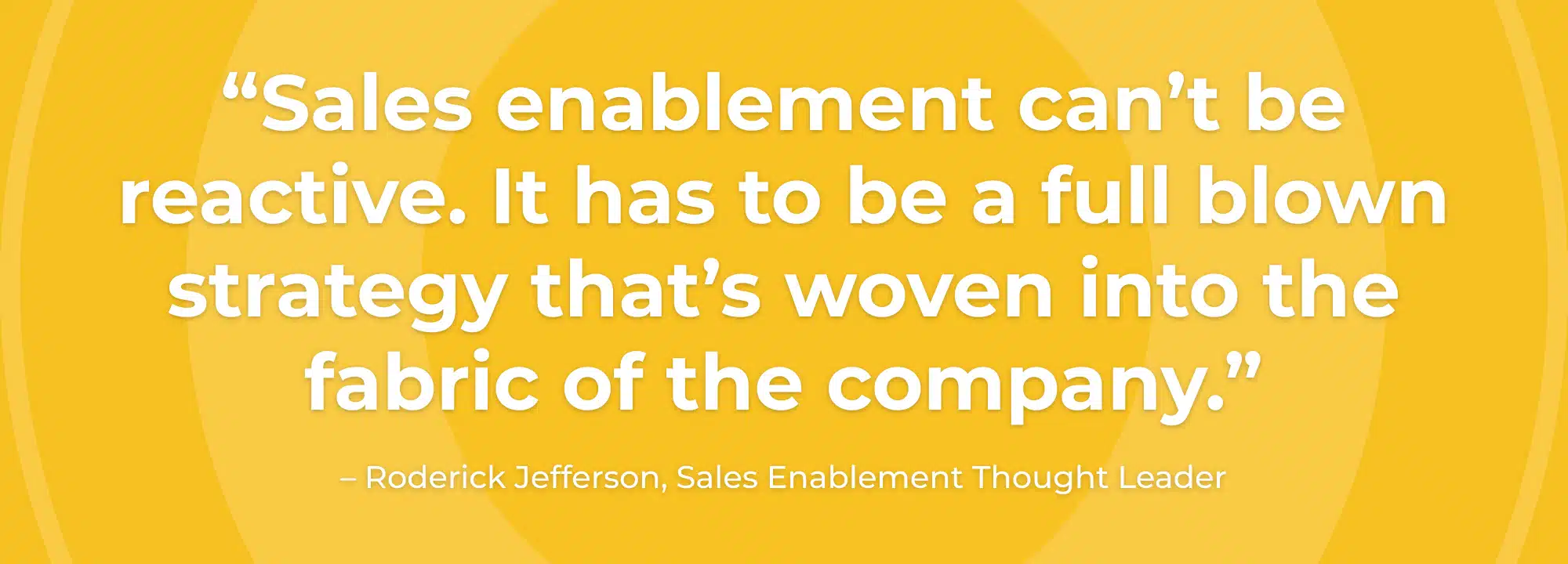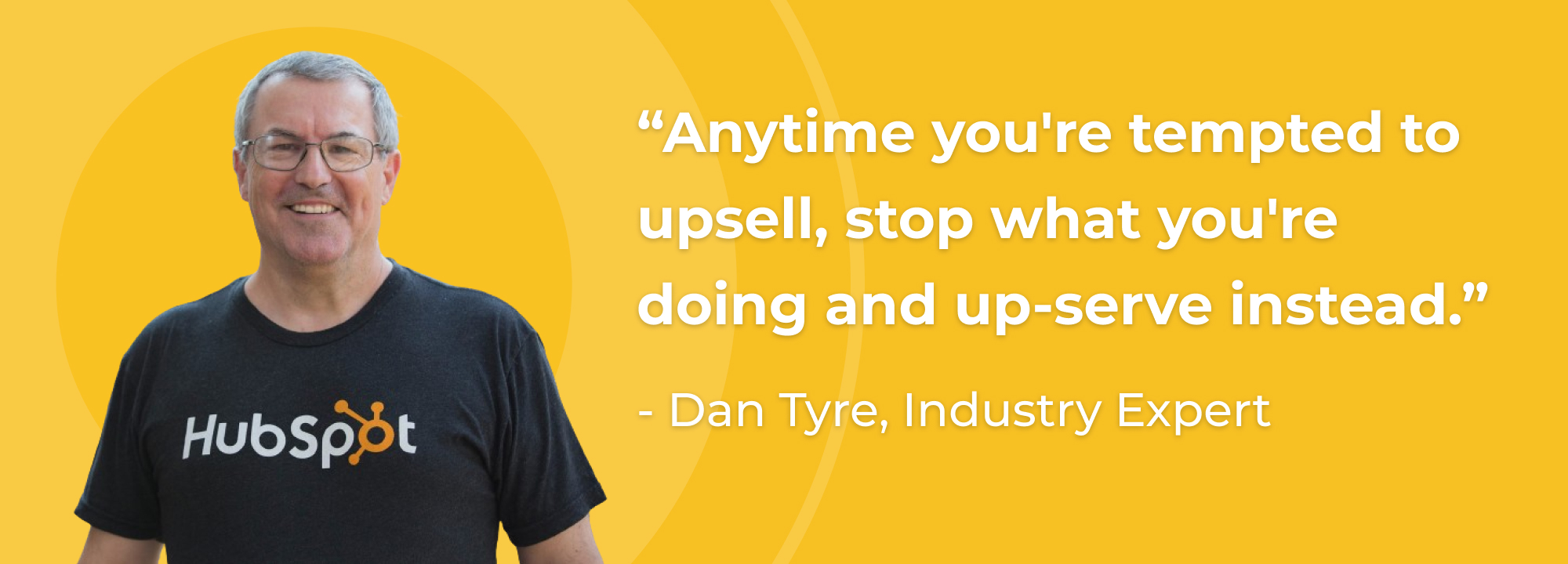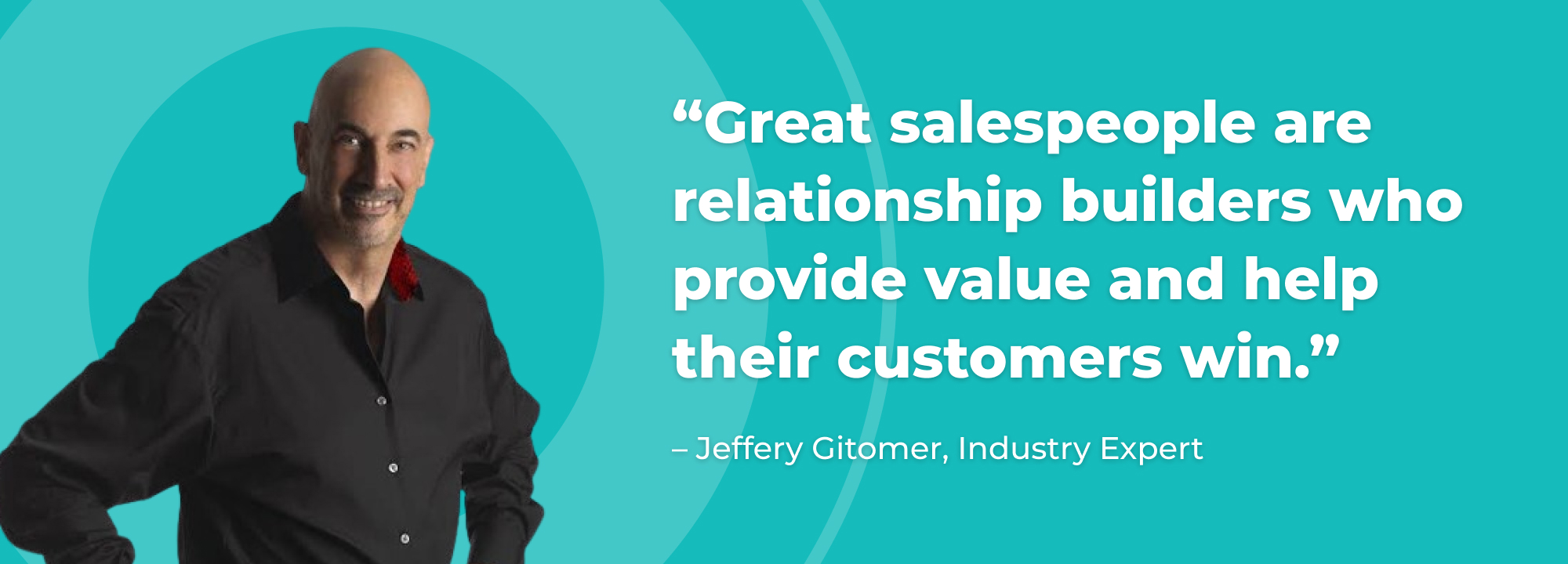Need fresh ideas for brand growth?
Subscribe to free insight emails
[Guide] Generate Sales: Sales Enablement for Healthcare
February 25, 2024

Generate Sales: A Radiant Guide to Sales Enablement for Healthcare
>> Download the PDF here to read later! <<
Generate Sales Guide Sections:
- Introduction
- Building a Foundation to Empower Your Sales Team
- Healthcare Sales Strategies and Measuring Success
- Conclusion
Section 1: Generate Sales – An Introduction to Healthcare Sales Enablement
In the intricate world of healthcare marketing, the concept of sales enablement takes center stage, representing a strategic alignment of sales and marketing efforts to generate sales. Coined as “smarketing” by industry expert Dan Tyre, sales enablement is the fusion of sales and marketing activities, creating a synergistic approach to engaging potential leads.

Generating sales involves the strategic implementation of tools, processes, and resources to empower sales teams, ensuring they have the necessary information and assets to effectively communicate with prospects and generate sales.
This guide, created by Radiant Marketing, delves into the core principles of sales enablement for healthcare brands, offering actionable insights and strategies to elevate lead progression and conversion initiatives and results, including the generation of sales and new business.
A. Importance of Healthcare Sales Enablement to Generate Sales
Within the healthcare sector’s dynamic landscape, where relationships hold paramount importance and decisions bear substantial weight, the significance of sales enablement cannot be overstated. A study found that organizations who focus on sales enablement achieve a 49% win rate on forecasted deals, compared to 42.5% for those without. Strategies to help generate sales become vital in the success of marketing endeavors by fostering collaboration between sales and marketing teams.
Healthcare sales enablement extends beyond traditional lead generation, focusing on equipping sales teams with the expertise to navigate the intricacies of compliance, effectively communicate with diverse stakeholders, and address the unique challenges presented by the healthcare landscape.
As healthcare consumers become more informed and discerning, the need for a cohesive ‘smarketing’ strategy is critical. Sales enablement not only enhances the efficiency of lead generation but also contributes to building trust, nurturing meaningful connections, and ultimately influencing positive patient outcomes and business growth by generating sales.
Understanding the pivotal role of sales enablement in the healthcare industry lays the groundwork for a comprehensive approach to lead progression. This approach goes beyond transactional interactions, emphasizing the building of enduring relationships in the ever-evolving and vital healthcare sector.
B. Understanding the Healthcare Sales Landscape
Current Trends and Challenges in Generating Sales in Healthcare
The process of generating sales in healthcare – both B2C and B2B – is undergoing significant changes, especially in the aftermath of COVID-19. In the pharmaceutical and field marketing sectors, there’s a notable shift towards virtual and technological advancements. For instance, pharmaceutical companies are increasingly leveraging virtual platforms for sales presentations and engagement with healthcare professionals. This change not only aligns with the evolving preferences post-pandemic but also enhances accessibility and efficiency.1
Companies like Pfizer have adopted virtual engagement strategies to connect with healthcare professionals. Webinars, online presentations, and virtual conferences have become integral parts of their sales approach, adapting to the changing landscape.
Regulatory Considerations for Generating Sales
Navigating the healthcare sales landscape requires an awareness of regulatory considerations. This includes adherence to industry standards, compliance with healthcare laws, and a commitment to ethical practices.1 Ensuring that sales strategies align with regulations is crucial to building trust and maintaining the integrity of the healthcare brand.
Key Stakeholders in the Healthcare Sales Process
When it comes to generating healthcare sales, various stakeholders play pivotal roles. These include healthcare professionals, patients, payers, and even regulatory bodies. Understanding the needs and expectations of each stakeholder is essential for crafting effective sales strategies.
For example, tailoring sales pitches to address the concerns of healthcare professionals and providing clear information for patients contribute to successful healthcare sales.
The Mayo Clinic prioritizes a patient-centric sales approach in their strategies. By considering the needs and preferences of patients in their communication and service delivery, they build trust and enhance the overall sales process.
C. Patient-Centric Sales Generation Approaches
Understanding the Patient Journey
In patient-centric sales approaches, understanding the patient journey is key. This involves recognizing the various stages a patient goes through, from awareness to decision-making and post-purchase engagement.2 Through a deep understanding of this journey, healthcare brands can tailor their sales strategies to meet patients’ specific needs at each step.
The Mayo Clinic excels in understanding the patient journey. They focus on providing clear and accessible information at every stage, ensuring patients feel supported and informed throughout their healthcare experience.
Personalized Sales Strategies for Individual Patients
89% of consumers buy based on the overall sales experience, regardless of price or functionality. This means that unlike traditional sales approaches, patient-centric strategies must prioritize personalization and the overall experience. Tailoring sales efforts to the unique needs and preferences of individual patients is paramount. This may involve customizing product or service recommendations, adapting communication styles, and considering the patient’s specific health concerns.2
Cleveland Clinic offers personalized health screenings tailored to different demographics. This personalized approach ensures that individuals receive recommendations and information relevant to their specific health needs.
Incorporating Patient Education in Sales Processes
Patient education is a core element of patient-centric sales generation. Healthcare brands focus on providing educational resources and information to empower patients to make informed decisions about their health. This may include detailed product information, online resources, or even interactive tools that aid patients in understanding their options.
Healthline implements patient education through email drip campaigns. By delivering relevant and educational content over a series of emails, they engage and nurture leads, promoting informed decision-making among their audience.
D. The Role of Data Privacy in Healthcare Sales
Ensuring Compliance with Data Protection Regulations
In the world of healthcare sales generation, adherence to data protection regulations is non-negotiable. Brands must ensure compliance with laws like HIPAA to safeguard patient information. This involves implementing secure data storage, transmission, and processing systems that align with stringent privacy standards.3
Epic Systems prioritizes HIPAA compliance in their healthcare information technologies. Their systems adhere to strict regulations, ensuring the secure handling of patient data.
Safeguarding Patient Information in Sales Processes
Safeguarding patient information is a critical aspect of ethical healthcare sales generation. Sales processes should incorporate robust security measures to protect sensitive data, including encryption, access controls, and secure communication channels.3
Ochsner Health System implemented stringent data privacy measures, resulting in increased patient trust and a positive impact on their lead generation and sales outcomes.
Building Trust through Transparent Data Practices
Transparency in data practices is crucial for building trust. Clearly communicating how patient data is collected, used, and protected fosters transparency. Healthcare brands that prioritize openness in their data practices contribute to a trustworthy and ethical sales environment.
GeneHealth Analytics excels in transparent communication about data practices. Their privacy policy clearly outlines the purpose of data collection and usage, fostering trust and compliance with ethical standards.
Section 2: Building a Foundation to Empower Your Sales Team
A. Defining Goals to Generate Sales in Healthcare
Defining clear sales goals is crucial for empowering your healthcare sales team. Whether it’s enhancing customer engagement, improving lead conversion, or streamlining sales processes, having specific and measurable goals provides direction and focus.
Pfizer sets sales enablement goals focused on virtual engagement and efficient communication with healthcare professionals. This aligns with their strategy post-COVID and reflects the industry’s shift towards virtual interactions.
Aligning Sales and Marketing Strategies (“Smarketing”)
In healthcare, the collaboration between sales and marketing, often termed “smarketing,” is essential. Aligning strategies ensures a cohesive approach, where marketing efforts complement the goals and activities of the sales team, ultimately driving more effective lead generation.
Establishing Key Performance Indicators (KPIs)
When generating healthcare sales, defining KPIs, such as lead conversion rates, customer acquisition costs, and customer lifetime value, helps measure the effectiveness of sales strategies and track progress toward overarching goals.
B. Know Your Audience
Buyer Personas in Healthcare
Understanding your audience is foundational. Creating detailed buyer personas in healthcare sales involves defining the characteristics, preferences, and challenges of your ideal customers. This ensures that your sales strategies are tailored to meet their specific needs.4
Cleveland Clinic segments its audience for personalized health screenings. By understanding the demographics and health concerns of different groups, they tailor their sales approach effectively.
Tailoring Messaging for Healthcare Professionals
In healthcare sales, messaging must resonate with healthcare professionals. Tailoring communication to address their unique challenges, preferences, and priorities builds rapport and enhances the effectiveness of your sales outreach.
Doctor on Demand tailors its messaging for healthcare professionals by highlighting the efficiency and convenience of virtual consultations. This addresses the busy schedules of healthcare providers.
Addressing Pain Points and Challenges
Identifying and addressing pain points is crucial. In healthcare sales, understanding the challenges faced by your audience allows you to position your product or service as a solution, creating value and meeting the specific needs of healthcare stakeholders.
C. Market Research and Competitive Analysis
Conducting Market Research in the Healthcare Industry
In the ever-evolving healthcare industry, continuous market research is vital for generating sales. Understanding market trends, consumer behaviors, and emerging technologies equips your sales team with the insights needed to adapt and stay ahead.
Analyzing Competitors’ Sales Strategies
Analyzing competitors provides valuable insights. Studying competitors’ sales strategies allows your team to identify industry best practices, assess market positioning, and differentiate your approach to gain a competitive edge.4
Ochsner Health System collaborates with various healthcare entities, including life science companies and digital health startups. This strategic collaboration stems from a thorough analysis of the competitive landscape, identifying opportunities for partnership.
Identifying Market Gaps and Opportunities
Market gaps present opportunities for innovation. Through comprehensive market analysis, your sales team can identify gaps in services or unmet needs, allowing you to tailor your offerings to fill these voids and capitalize on emerging opportunities to generate more sales.
The surge in telehealth services during and after the pandemic presented opportunities. Companies like Doctor on Demand and Teladoc seized the moment by offering convenient and accessible virtual healthcare solutions.
D. Effective Networking in Healthcare Sales Generation
Attending Healthcare Conferences and Events
Networking can be a powerful tool in generating healthcare sales. Attending conferences and events provides opportunities to connect with key industry players, stay informed about industry trends, and build relationships that can lead to valuable partnerships. This approach can get costly, so it’s important to appropriately evaluate events and prioritize those that will effectively expose you to best-fit prospects or partners.
Building and Nurturing Professional Relationships
Radiant client Lifescape does a fantastic job at prioritizing relationship building. By nurturing connections with healthcare professionals and organizations, they create a partner network that extends beyond individual sales transactions and provides their patients with a comprehensive network of complementary resources.
E. Content Development for Generating Sales
Creating Educational and Informative Content
In healthcare sales, content is a powerful tool. Developing educational and informative content ensures that sales teams have valuable resources to engage and educate healthcare professionals, patients, and stakeholders.
“As a content writer in the healthcare industry, I’ve witnessed the transformative impact of educational and informative content,” shares Lauren Karwoski, Radiant Content Strategist, “Crafting valuable resources not only equips sales teams with powerful tools but also establishes a brand as a trusted source of knowledge.”
Utilizing Case Studies and Success Stories
Case studies and success stories offer tangible proof of a brand’s impact. By showcasing real-world examples, healthcare sales teams can illustrate the value of their products or services in solving specific challenges.
Omada Health effectively uses success stories to demonstrate the positive impact of their digital health solutions. These stories serve as compelling sales tools, resonating with potential clients and patients.
Incorporating Compliance and Ethical Considerations
Ethical considerations are paramount in healthcare. Content development should align with compliance standards, ensuring that all materials adhere to regulatory requirements and ethical guidelines.3
F. Leveraging Technology to Generate Sales
Customer Relationship Management (CRM) Systems and Healthcare Sales
CRM systems are indispensable in healthcare sales. They provide a centralized platform for managing patient relationships, optimizing communication, and personalizing interactions.
Cleveland Clinic utilizes Salesforce Health Cloud to streamline patient interactions. This CRM system empowers their sales team by providing a comprehensive view of patient data, enhancing personalized healthcare experiences.
Marketing Automation for Personalized Engagement
Marketing automation is a game-changer for personalized engagement. In healthcare sales, leveraging automation tools allows brands to deliver targeted content, nurture leads, and enhance the overall sales process.
HubSpot’s marketing automation platform is widely adopted in healthcare. It enables personalized communication, automated workflows, and data-driven insights, empowering sales teams to engage effectively with their audience.
Integrating Telehealth and Virtual Platforms
The integration of telehealth and virtual platforms is transforming the way companies generate healthcare sales. Sales teams can leverage these technologies to conduct virtual consultations, engage with patients remotely, and adapt to the evolving landscape.
G. Sales Training and Development
Continuous Training for Healthcare Sales Teams
In the healthcare industry, continuous training is essential. Sales teams need ongoing education to stay updated on industry trends, product advancements, and effective sales techniques to maintain their ability to generate sales.
“Establishing a process for sales team onboarding and training, as well as ongoing trainings, is critical to ensuring everyone is operating effectively and consistently,” shares Karen Cummings, Radiant Founder & CEO, “This continuity makes sales process analysis much more effective, empowering teams to optimize their sales communications and tools to generate more sales.”
Role-specific Training Modules
Tailoring training to specific roles within the sales team enhances expertise. Role-specific training modules equip team members with the knowledge and skills necessary for their unique responsibilities.
Epic Systems provides role-specific training for its sales team, focusing on the nuances of healthcare technology. This targeted approach ensures that each team member is proficient in addressing the specific needs of their clientele.
Incorporating Regulatory and Compliance Training
Regulatory and compliance training is non-negotiable in generating healthcare sales. Sales teams must be well-versed in industry regulations to ensure ethical practices and adherence to legal standards.
Johnson & Johnson incorporates regulatory and compliance training into its sales education programs. This ensures that sales representatives operate within the bounds of healthcare regulations, maintaining the integrity of their sales processes.
H. Collaboration Between Sales and Other Departments
Enhancing Communication with Customer Support
Effective collaboration with customer support is vital for seamless customer experiences. Sales teams should maintain open communication channels to address customer inquiries, feedback, and concerns promptly.
Building Bridges with Product Development and R&D
Collaboration with product development and research & development (R&D) teams is essential for aligning sales strategies with product advancements. Regular communication ensures that sales teams stay informed about new features and innovations, enhancing their ability to promote cutting-edge solutions.6
Section 3: Healthcare Strategies to Generate Sales & Measuring Success
A. Value-Based Selling in Healthcare
Studies found that 74% of buyers chose the company that first adds value. Effectively articulate the value proposition of healthcare products and services, emphasizing how they contribute to value-based care. Highlighting the positive impact on patient outcomes and cost-efficiency is key.
Emphasizing Patient Outcomes in Sales Pitches
Tailor sales pitches to underscore real-world patient outcomes. Demonstrating the tangible benefits of healthcare solutions enhances credibility and resonates with potential buyers.
Addressing Cost-Efficiency and Return on Investment
Incorporate discussions on cost-efficiency and return on investment in sales conversations. Showcase how the proposed solutions provide economic value while delivering quality care.
B. Data-Driven Decision Making in Healthcare Sales Generation
Analyzing Sales Data for Insights
Leverage sales data analysis to gain valuable insights into customer behavior and preferences. Informed decision-making based on data enhances the effectiveness of sales strategies.
Predictive Analytics for Generating Healthcare Sales
Utilize predictive analytics to forecast trends and customer behaviors. Anticipating market shifts empowers sales teams to proactively adjust their approaches for optimal outcomes.5
Iterative Improvement Based on Data Feedback
Implement continuous improvement cycles based on data feedback. Iterative adjustments to sales strategies, guided by performance data, contribute to ongoing success in the healthcare landscape.6
C. Adapting Sales Strategies to Healthcare Trends
Staying Informed about Industry Innovations
Stay abreast of industry innovations while exercising caution against fleeting trends. Focusing on sustainable and impactful healthcare advancements ensures sales strategies remain relevant and effective.
Philips Healthcare stands out as a prime example of an organization staying informed about industry innovations. Philips continuously invests in research and development, bringing cutting-edge technologies to the forefront. By embracing innovations like telehealth solutions and AI-driven diagnostics, Philips ensures that its sales strategies align with sustainable trends.
Aligning Sales Pitches with Current Healthcare Challenges
Tailor sales pitches to align with prevalent healthcare challenges. By addressing current industry concerns, sales teams position themselves as valuable partners in overcoming obstacles.
D. Utilizing Data Analytics for Informed Sales Decisions
Leveraging Data to Identify Sales Opportunities
Harness the power of data analytics to identify potential sales opportunities. Data-driven insights enable sales teams to target their efforts effectively and capitalize on emerging trends.5
Predictive Analytics for Anticipating Customer Needs
Employ predictive analytics to anticipate customer needs. Proactively meeting the evolving demands of healthcare consumers positions sales teams ahead of the curve.
Analyzing Sales Performance Metrics for Continuous Improvement/h4>
Regularly analyze sales performance metrics for continuous improvement. Iterative adjustments, guided by performance data, ensure sustained success and relevance in the healthcare market.
E. Measuring Success and ROI
Key Metrics for Healthcare Sales Enablement
Define key metrics for generating healthcare sales, including lead conversion rates, customer acquisition costs, and customer lifetime value. These metrics provide a comprehensive view of sales success.
Assessing the Impact on Revenue and Conversion Rates
Evaluate the impact of sales strategies on revenue and conversion rates. A thorough assessment ensures alignment with overarching business goals and objectives.
Continuous Improvement Strategies
Implement continuous improvement strategies based on performance assessments. Adapting and refining sales approaches ensures ongoing success in the dynamic healthcare sales landscape.
Section 4: Generate More Sales with Radiant Marketing
Recap of Key Takeaways
In reflection, this guide has explored essential facets of generating healthcare sales, from understanding industry trends to leveraging data analytics for informed decisions. Key takeaways include the significance of aligning sales strategies with healthcare challenges, incorporating sustainability considerations, and embracing data-driven decision-making.
As the healthcare landscape continues to evolve, embracing a mindset of continuous improvement is paramount. Stay vigilant to industry shifts, adapt sales strategies accordingly, and leverage data analytics for insights. By fostering a culture of ongoing improvement, your sales team is poised for enduring success in the ever-changing healthcare environment.
Transform Your Sales Enablement Strategy with Radiant Marketing
Elevate your health and wellness brand with Radiant Marketing’s unparalleled expertise and unwavering commitment to positive change. At Radiant Marketing, we specialize in empowering innovative health and wellness brands, turning possibilities into reality through dynamic digital marketing strategies. Our comprehensive Branding, Lead Generation, Lead Progression, and Sales Enablement Diagnostic Programs unveil untapped opportunities, establishing a robust foundation for brand positioning and business expansion.
Embark on a journey with our Signature Programs, where we bring these opportunities to life. Executing strategic plans, we create powerfully-positioned brands, generate new leads, and progress existing leads through the sales process, fostering new and sustainable revenue streams for your business.
Schedule a Discovery Call
Ready to explore the possibilities for your brand? Request a discovery call today. Our collaborative and personalized approach, coupled with proven processes, ensures that your brand receives custom-tailored solutions at affordable prices. Partner with Radiant Marketing and chart a course toward transformative growth for your healthcare brand through expertly generated sales.
References
- https://infusemed.com/what-is-medical-sales-enablement/
- https://www.pharmatimes.com/web_exclusives/patient_centric_sales_1250799
- https://www.weareamnet.com/blog/taking-data-security-seriously-in-healthcare-marketing/
- https://blog.hootsuite.com/buyer-persona/
- https://www.junoschool.org/post/analyse-sales-trends-performance-data
- https://www.hubspot.com/sales-enablement


